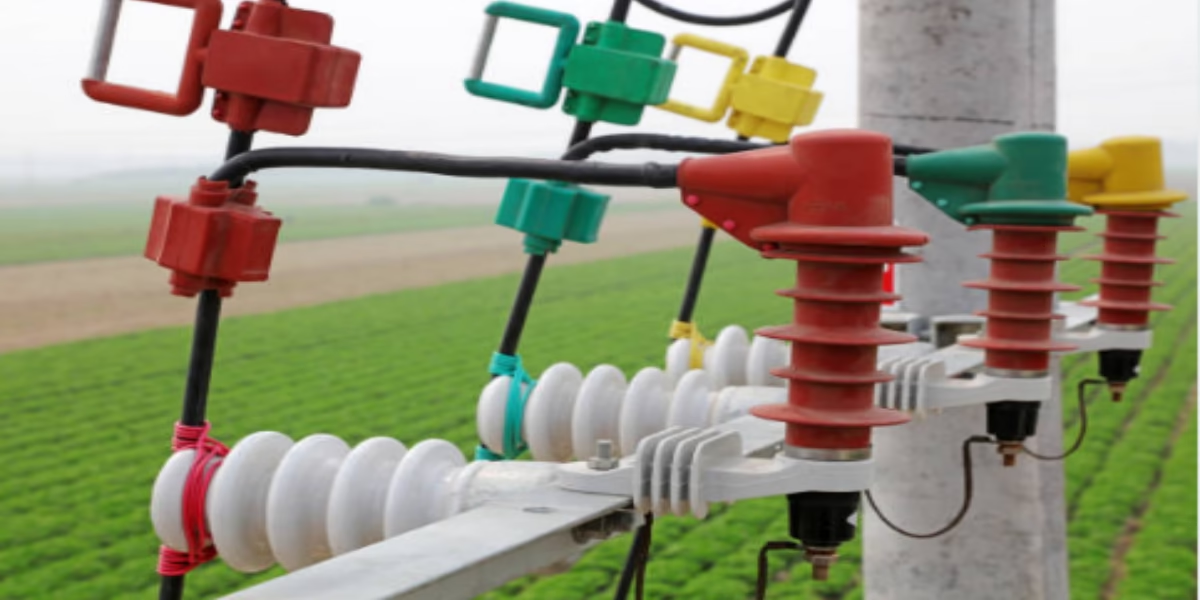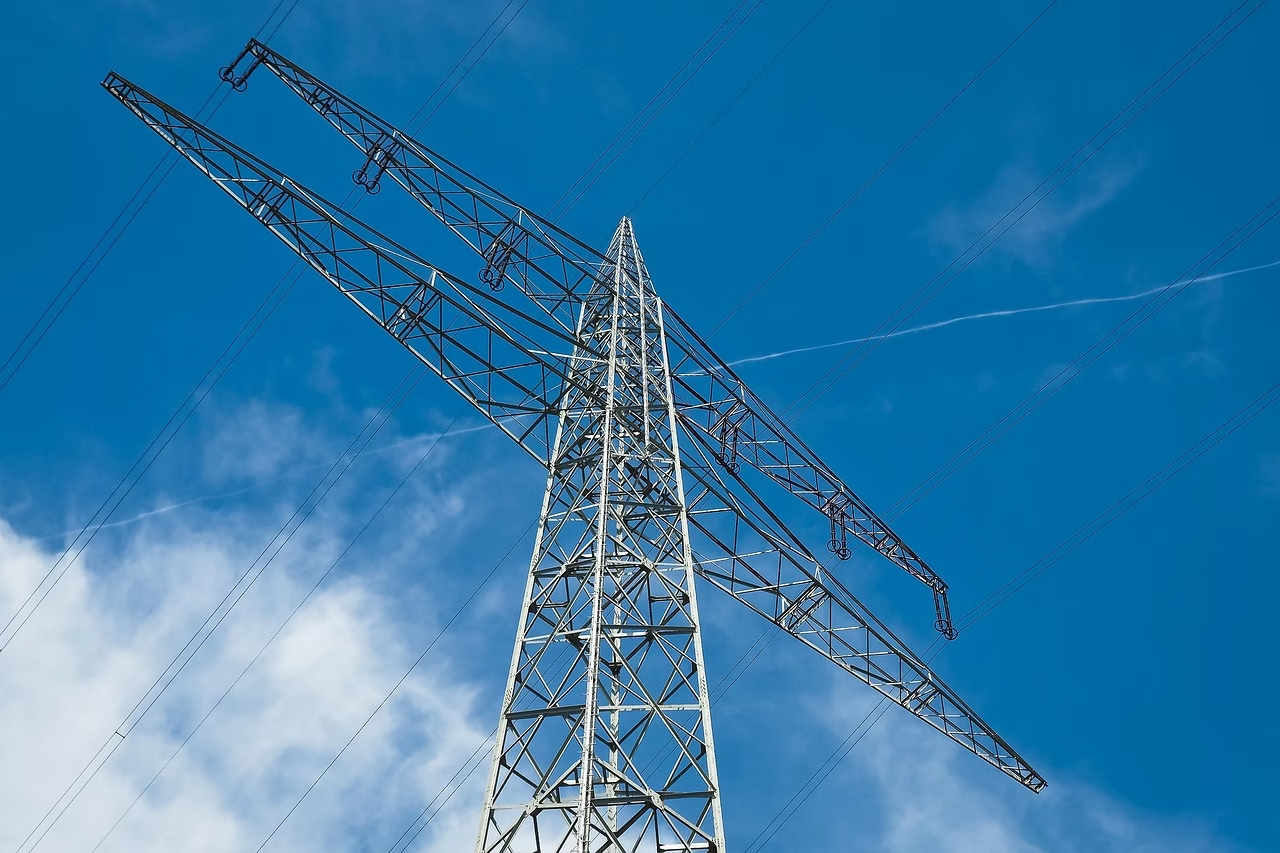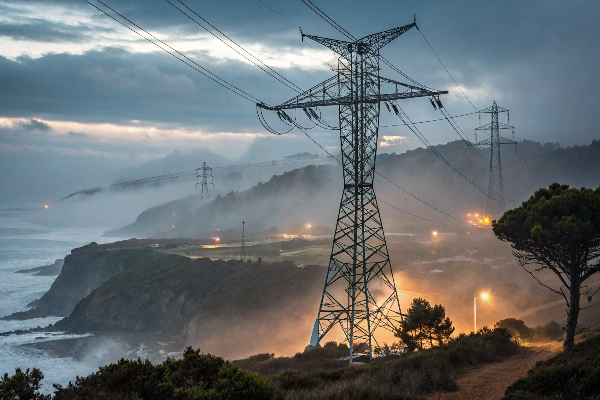In an era where electrical systems are becoming increasingly complex and the demand for reliable power transmission soars, the integrity of insulation technologies stands at the forefront of ensuring both safety and efficiency. Enter polymer insulators, a groundbreaking innovation that is redefining standards within the electrical industry. With their lightweight properties, superior performance in harsh environments, and resistance to contamination, polymer insulators are not just a replacement for traditional ceramic and glass options—they symbolize a leap toward a more resilient and enduring future. As we delve deeper into the world of polymer insulators, we explore how these materials are not only enhancing safety protocols but also driving significant advancements in electrical efficiency, ultimately paving the way for a smarter and safer power landscape.Join us as we unpack the transformative impact of polymer insulators on electrical systems worldwide.
Table of Contents
- polymer Insulators and Their Role in Modern electrical Infrastructure
- Understanding the Benefits of Polymer Insulators Over Traditional Materials
- Implementation Strategies for Enhanced Safety and Performance
- Future Trends in Polymer Insulator Technology and Their Implications
- Q&A
- Future Outlook
Polymer Insulators and Their Role in Modern Electrical Infrastructure
Polymer insulators have emerged as a game-changer in the realm of electrical infrastructure, offering enhanced durability and superior performance compared to traditional ceramic or glass insulators. these advanced materials are engineered to withstand harsh environmental conditions, including extreme temperatures, moisture, and pollution, making them ideal for use in diverse locales. Their lightweight nature significantly eases installation, reduces transportation costs, and minimizes the overall physical stress on power lines. The revolutionary properties of polymer insulators also contribute to higher resistance to mechanical failures and enhanced tracking performance, ensuring a longer service life and lower maintenance requirements.
Moreover, polymer insulators provide extraordinary electrical performance, maintaining consistently low leakage currents. this characteristic is crucial for preventing power losses and enhancing system efficiency. the following benefits highlight their pivotal role in modern electrical infrastructure:
- Improved safety: Reduced risk of electrical hazards due to superior insulation properties.
- Environmental sustainability: Lower life cycle impact due to reduced maintenance and replacement needs.
- Versatility: Suitable for various applications, including transmission and distribution networks.
| Feature | Polymer Insulators | Ceramic Insulators |
|---|---|---|
| Weight | Lightweight | Heavy |
| Durability | High | Medium |
| Maintenance | Low | High |
Understanding the Benefits of Polymer Insulators Over Traditional Materials
Polymer insulators bring a new dimension to electrical infrastructure, significantly outperforming traditional materials such as porcelain and glass. One of the most notable advantages is their lightweight nature, making installation and handling much easier, which ultimately reduces downtime during maintenance and upgrades. Additionally, these insulators exhibit superior mechanical strength and resistance to shocks, ensuring that they can withstand harsh environmental conditions while maintaining their functionality. This resilience not only enhances the longevity of electrical systems but also contributes to lower lifecycle costs.
Another compelling benefit is their inherent hydrophobic properties, which dramatically reduce the accumulation of contaminants and moisture. this characteristic minimizes electrical leakage and enhances reliability, especially in industries where operational safety is paramount. Polymer insulators also provide excellent thermal stability and resistance to UV radiation, ensuring they perform effectively in various climates.Below is a brief comparison of polymer insulators and traditional materials in key areas:
| Feature | Polymer Insulators | Traditional Materials |
|---|---|---|
| Weight | Lightweight | Heavy |
| Installation | Easy and quick | Labor-intensive |
| Contaminant Resistance | High | Lower |
| Durability | High | Variable |
| Cost Efficiency | Lower lifecycle costs | Higher maintenance costs |
Implementation Strategies for Enhanced Safety and Performance
To maximize the benefits of polymer insulators in electrical systems, organizations should adopt a multifaceted approach that addresses both safety and performance. training and Education programs for personnel are critical, ensuring that everyone involved understands the advantages and proper handling of polymer materials. Regular workshops and seminars can help facilitate this knowledge transfer and foster a culture that prioritizes safety. In parallel, implementing real-time monitoring technologies can enhance system performance by detecting potential failures early, allowing for prompt maintenance and minimizing downtime.
Moreover, setting up a collaborative framework between manufacturers, engineers, and utility companies will ensure a unified approach to safety standards and performance benchmarks. This partnership can lead to the growth of comprehensive guidelines that dictate installation methods, operational practices, and evaluation protocols specific to polymer insulators. Below is a simple guide outlining key focus areas for effective implementation:
| Focus Area | Implementation Strategy |
|---|---|
| Training Programs | Regular workshops and hands-on training |
| Real-Time Monitoring | Utilization of IoT devices for performance tracking |
| Standard Guidelines | collaboration across stakeholders for unified practices |
| Maintenance Schedules | Routine checks based on data analytics insights |
Future Trends in Polymer Insulator Technology and Their Implications
With advancements in materials science, the future of polymer insulator technology is poised to evolve dramatically.By integrating nanotechnology, we can enhance the electrical and mechanical properties of polymers, leading to greater durability and improved performance under extreme conditions. Innovations such as self-cleaning surfaces and UV-resistant formulations are being developed to ensure that polymer insulators maintain their efficacy over time, reducing maintenance efforts and costs for utility companies. The potential for smart insulators equipped with sensors is also on the horizon, allowing for real-time data collection and monitoring, which can improve system reliability and safety.
The implications of these trends are profound, as they promise not only to enhance electrical safety but also to significantly improve the efficiency of power transmission systems. As cities grow and demand for electricity increases,polymer insulators can help address the challenge of aging infrastructure by providing lightweight and high-performance alternatives. Moreover, their inherent properties can lead to reduced environmental impact, promoting sustainability in energy distribution.The shift towards renewable energy sources will also be supported by innovations in polymer insulators, making them crucial for modern grid systems.
Q&A
Q&A: Polymer Insulators - Revolutionizing Electrical Safety and Efficiency
Q1: What are polymer insulators, and how do they differ from traditional insulators?
A1: Polymer insulators are innovative electrical insulators made from materials such as silicone or polyurethane. Unlike traditional porcelain or glass insulators,polymer insulators are lightweight,flexible,and more resistant to environmental stressors. They maintain their performance even in extreme weather conditions, which enhances their reliability in various applications.
Q2: Why is the shift towards polymer insulators considered revolutionary?
A2: The shift to polymer insulators is revolutionary due to their ability to improve operational efficiency and safety in electrical systems. Their lightweight nature reduces installation and transportation costs while minimizing mechanical stress on supporting structures. Moreover, they are less prone to breakage, which decreases the risk of hazardous electrical failures, ensuring safer environments for both workers and the public.
Q3: How do polymer insulators enhance electrical safety?
A3: Polymer insulators enhance electrical safety in several ways. They provide excellent electrical insulation and superior hydrophobic properties,which prevent water accumulation and reduce the risk of flashover. Additionally, their resilience to environmental contaminants, such as dust and pollution, helps maintain their insulating properties, leading to fewer outages and increased reliability in transmission lines.
Q4: What are the efficiency benefits of using polymer insulators?
A4: Polymer insulators contribute to efficiency by enabling more compact and lightweight designs, which can lead to the development of smaller and more efficient substation layouts. they also support longer spans between poles, reducing the number of required structures and improving overall line capacity. This not only saves material costs but also enhances the efficiency of energy transportation.
Q5: Are ther any downsides to using polymer insulators?
A5: While polymer insulators offer many advantages, there are some concerns to consider. They may have a shorter lifespan compared to traditional materials under certain conditions and can be more susceptible to damage from physical impacts.Additionally, there are ongoing discussions in the industry regarding their long-term environmental impact and recyclability. As with any technology, continuous research and development are crucial to address these challenges.
Q6: What industries are benefiting the most from polymer insulator technology?
A6: Various industries are reaping the benefits of polymer insulator technology, primarily the utility sector, including power generation, transmission, and distribution. Railways and telecommunications also utilize polymer insulators to ensure efficient operations. Looking ahead, as renewable energy installations like wind and solar farms expand, the demand for durable and efficient insulators will likely grow even further.
Q7: How do you see the future of polymer insulators in electrical engineering?
A7: the future of polymer insulators in electrical engineering appears promising. With ongoing advancements in material science, we can expect the development of even more effective variants that enhance durability and performance. As the world increasingly leans towards sustainable energy solutions, polymer insulators will play a key role in making electrical grids more efficient and resilient, ultimately contributing to a greener future.
---
Q8: Where can readers learn more about advances in polymer insulator technology?
A8: Readers interested in polymer insulator technology can explore resources from industry publications, electrical engineering conferences, and specialized websites focused on electrical infrastructure.Additionally, academic journals and research papers provide deeper insights into the latest innovations and findings related to polymer materials in electrical applications.
Future Outlook
as we navigate the complexities of modern electrical systems, polymer insulators stand out as a beacon of innovation and safety. Their ability to outperform traditional materials in durability, performance, and environmental resilience is not merely a testament to technological advancement; it is indeed a vital stride towards securing our energy infrastructure for the future. By embracing these polymers,we are not only enhancing the efficiency of our electrical networks but also ensuring a safer environment for communities worldwide.
As we continue to explore and harness the potential of polymer insulators, it’s clear that their role in revolutionizing electrical safety and efficiency is just beginning. With ongoing research and development, we can expect even more remarkable advancements that will pave the way for a cleaner, safer, and more reliable energy landscape. Here’s to the enduring power of innovation—may it guide us toward a brighter, safer tomorrow.





